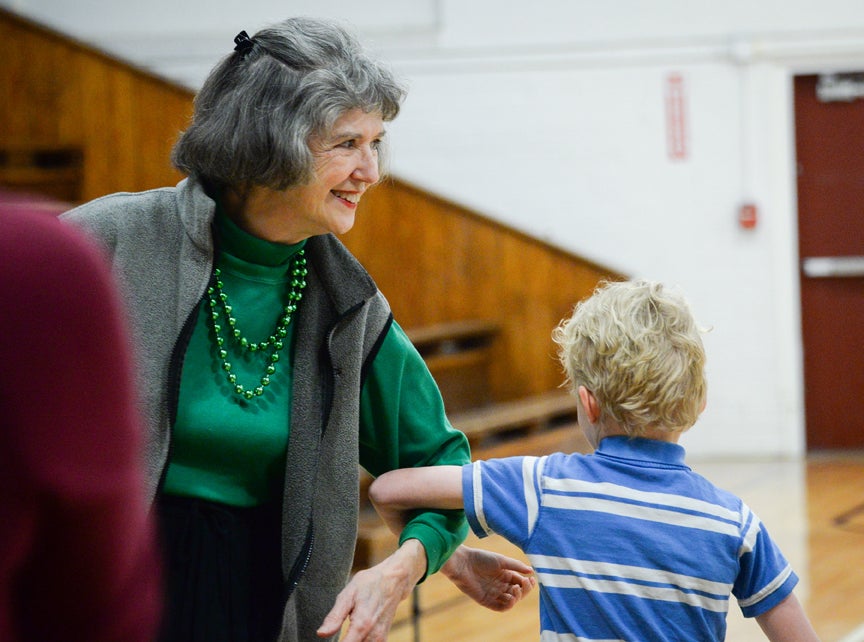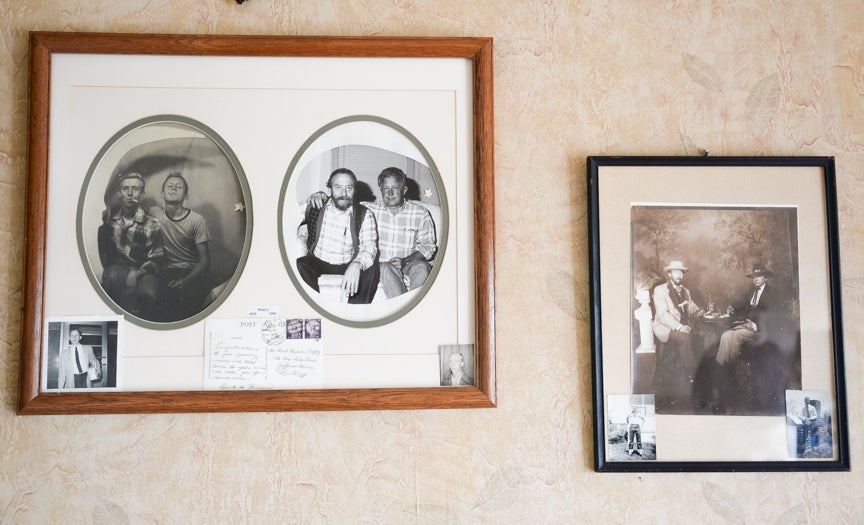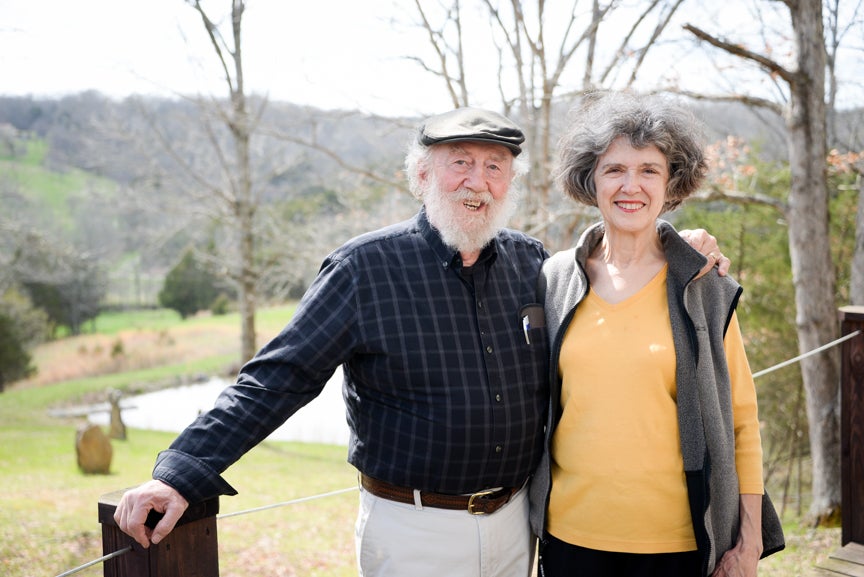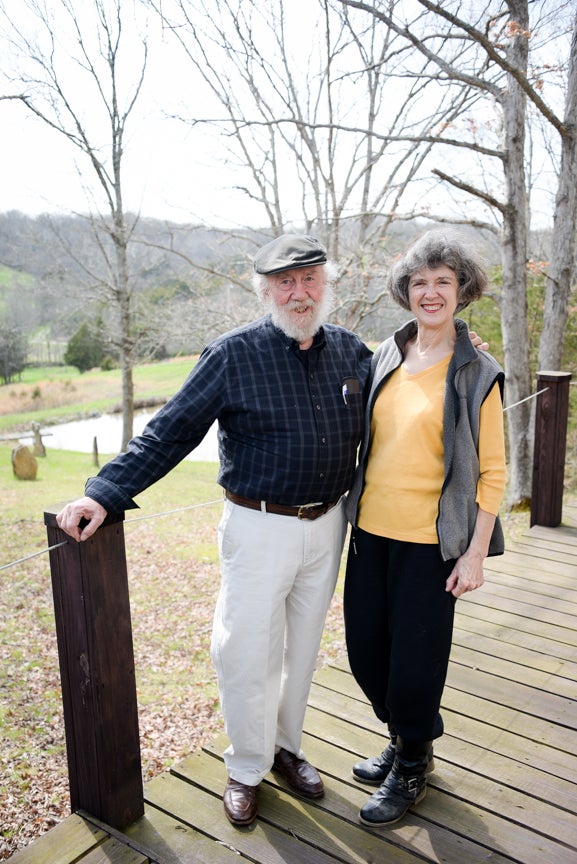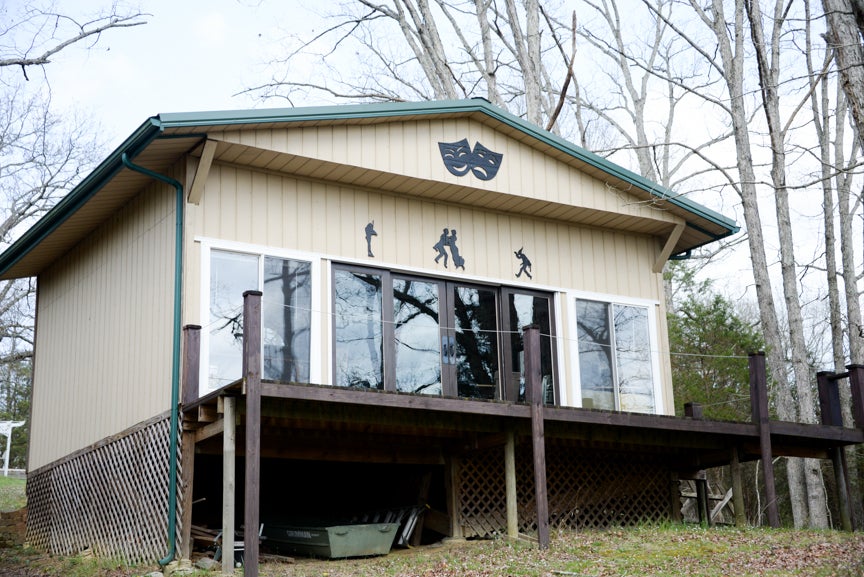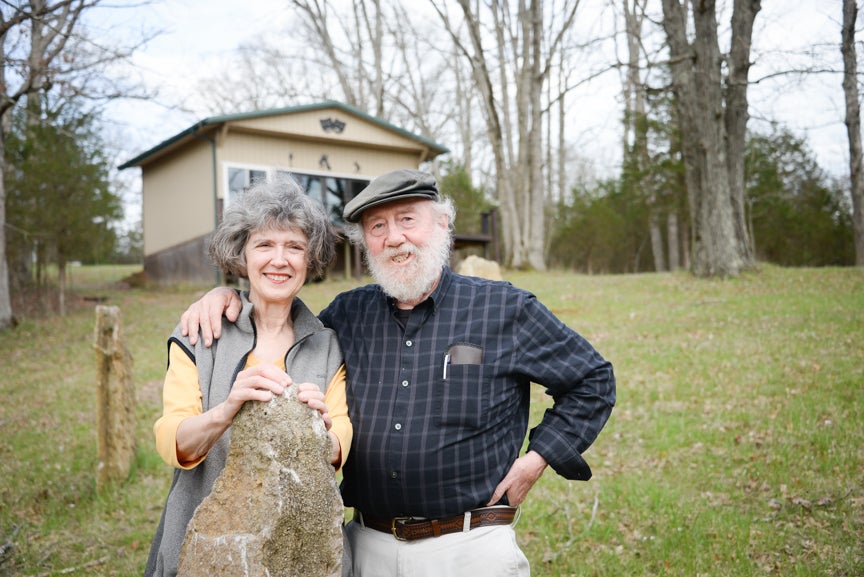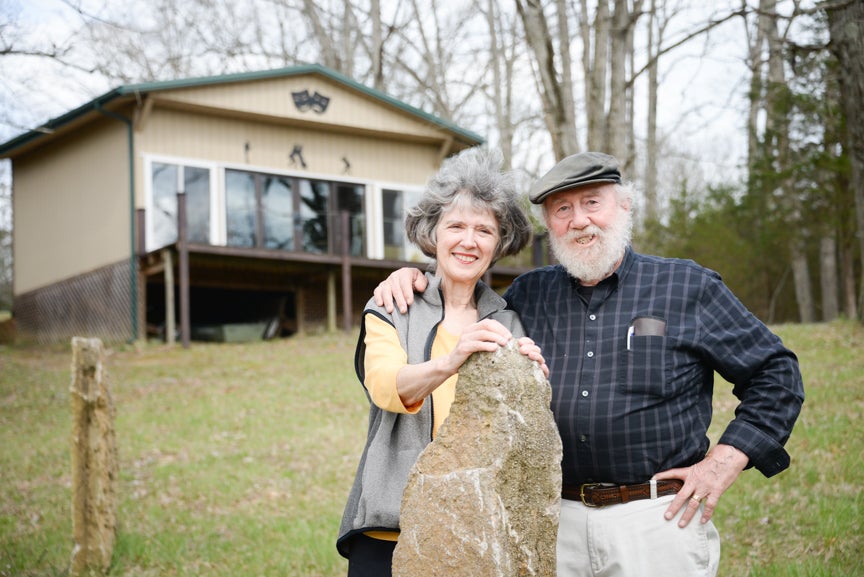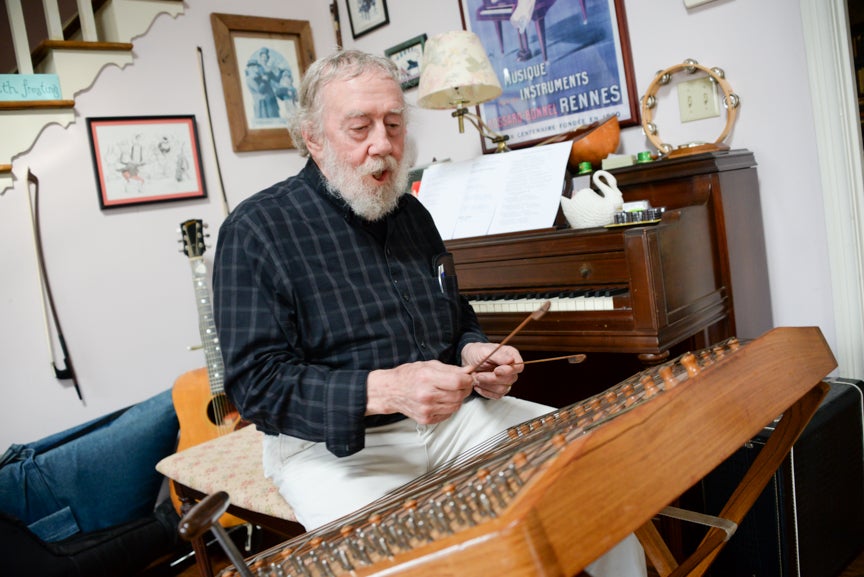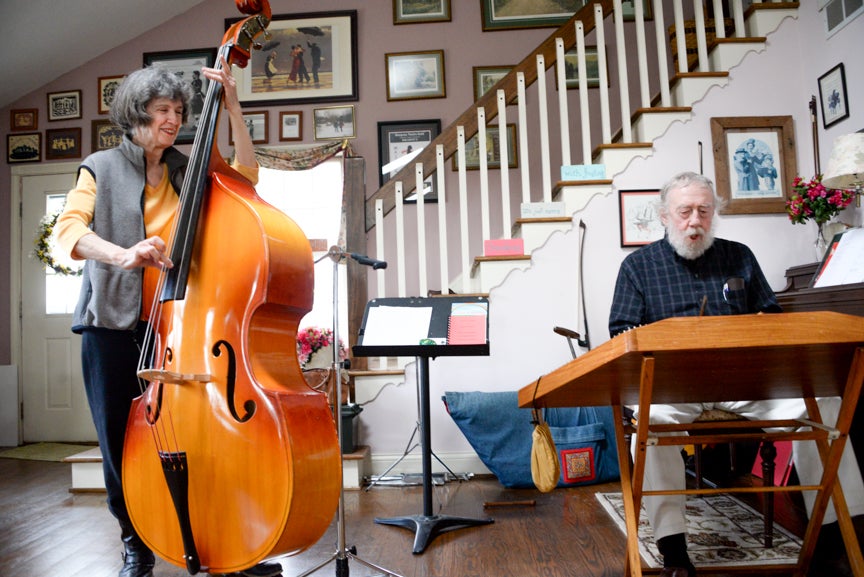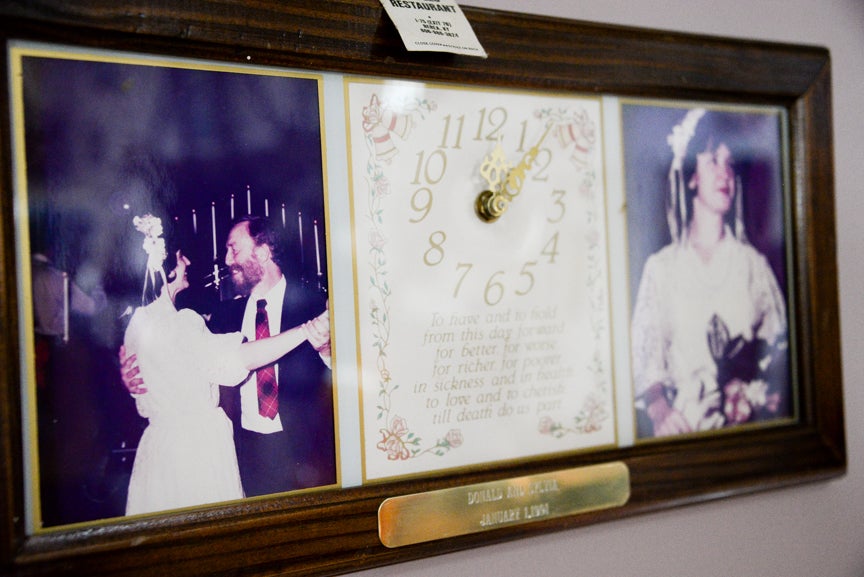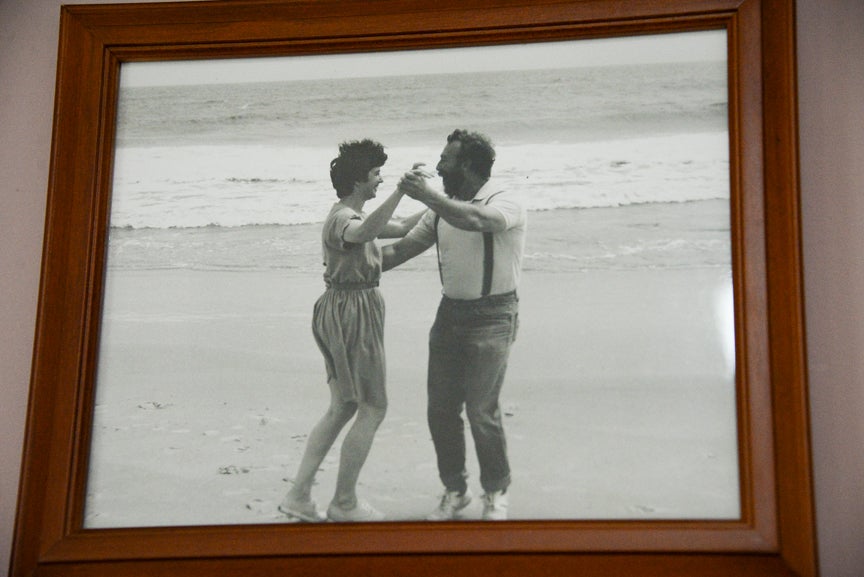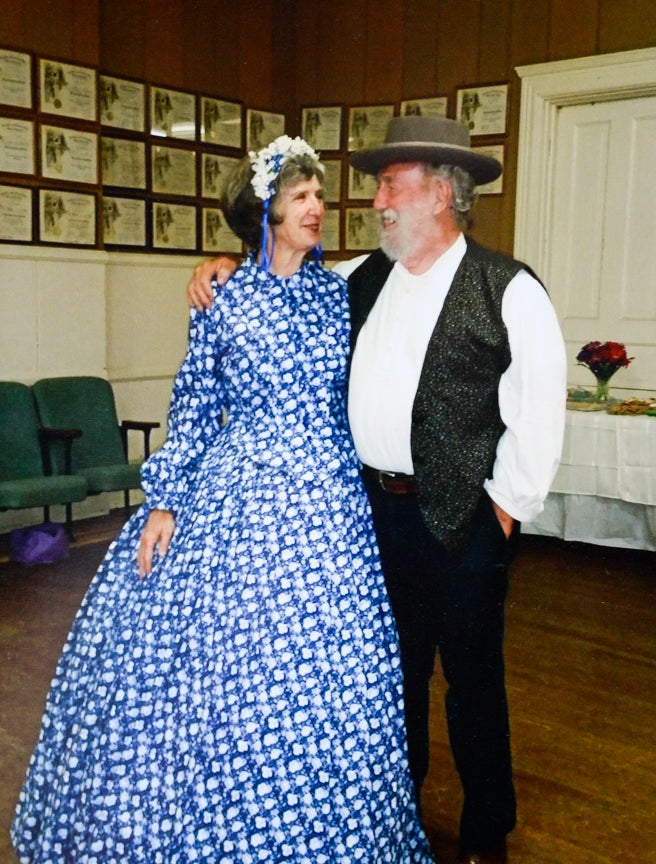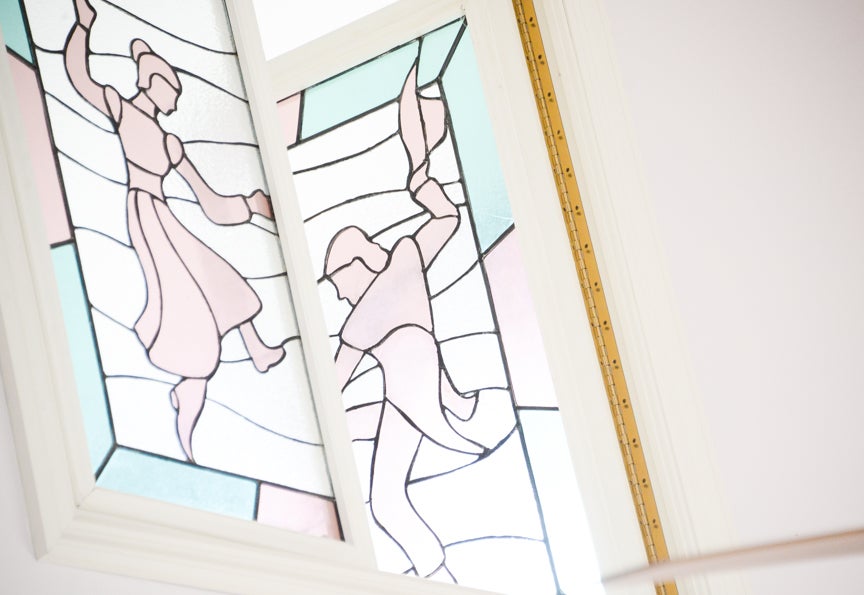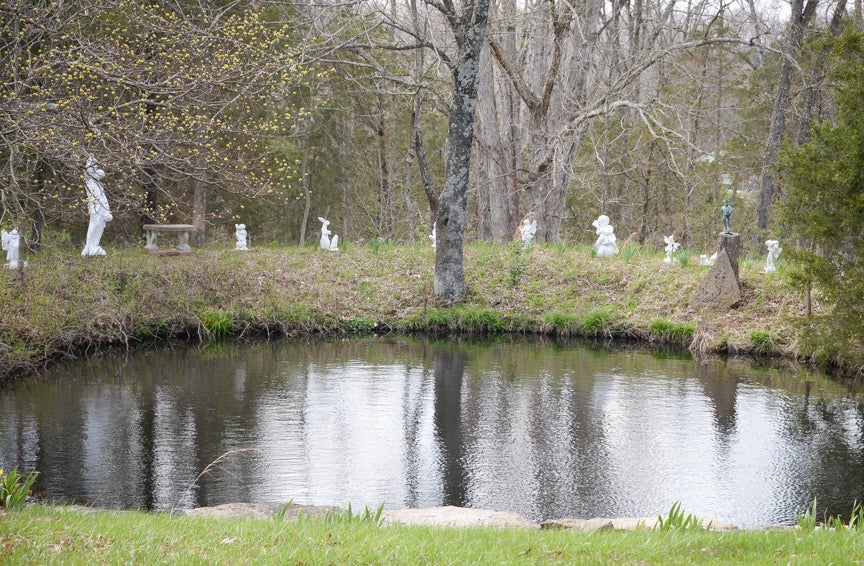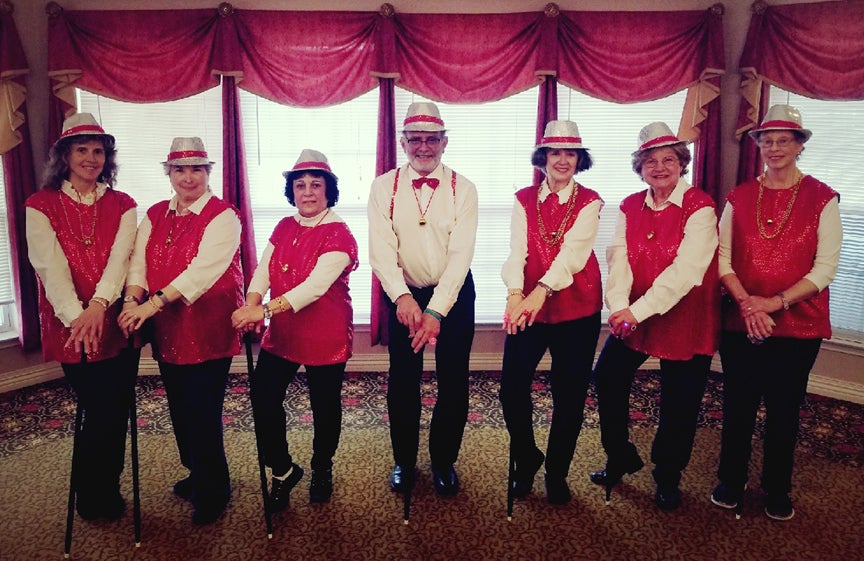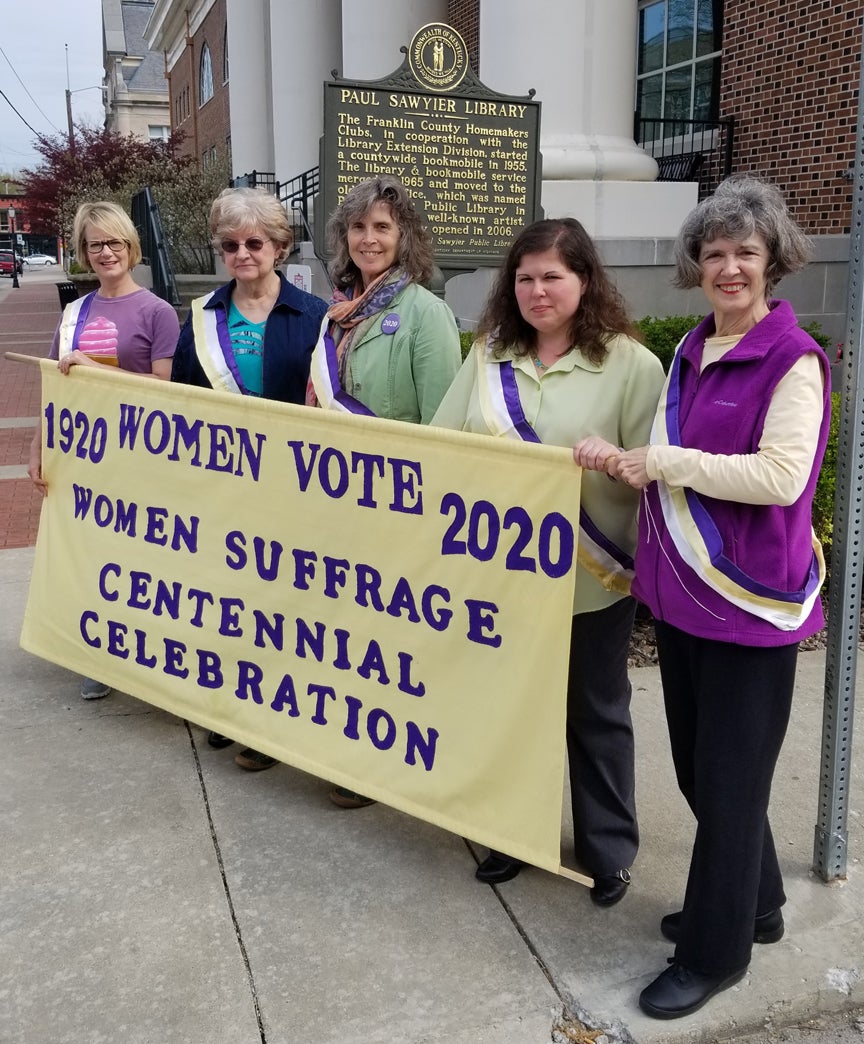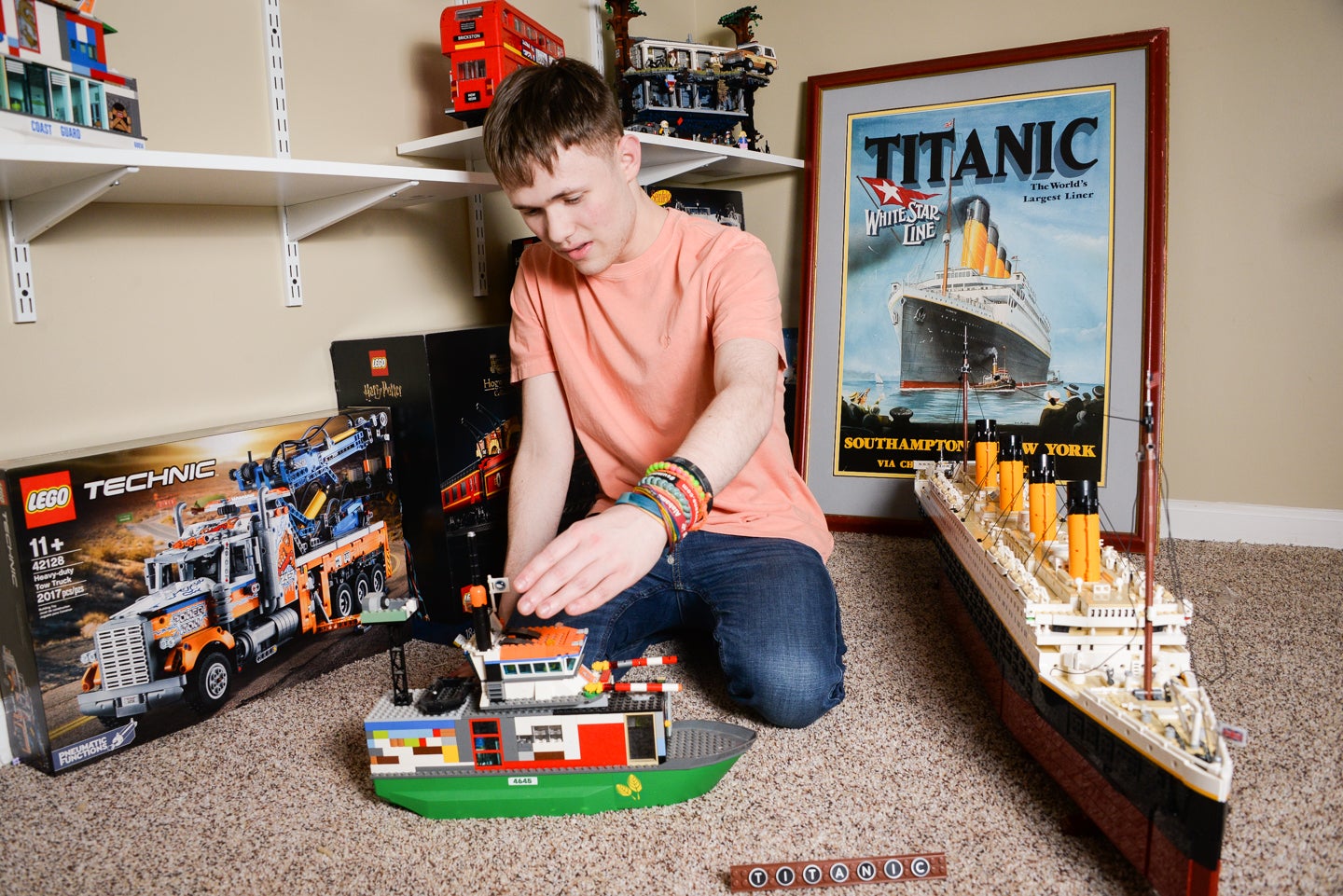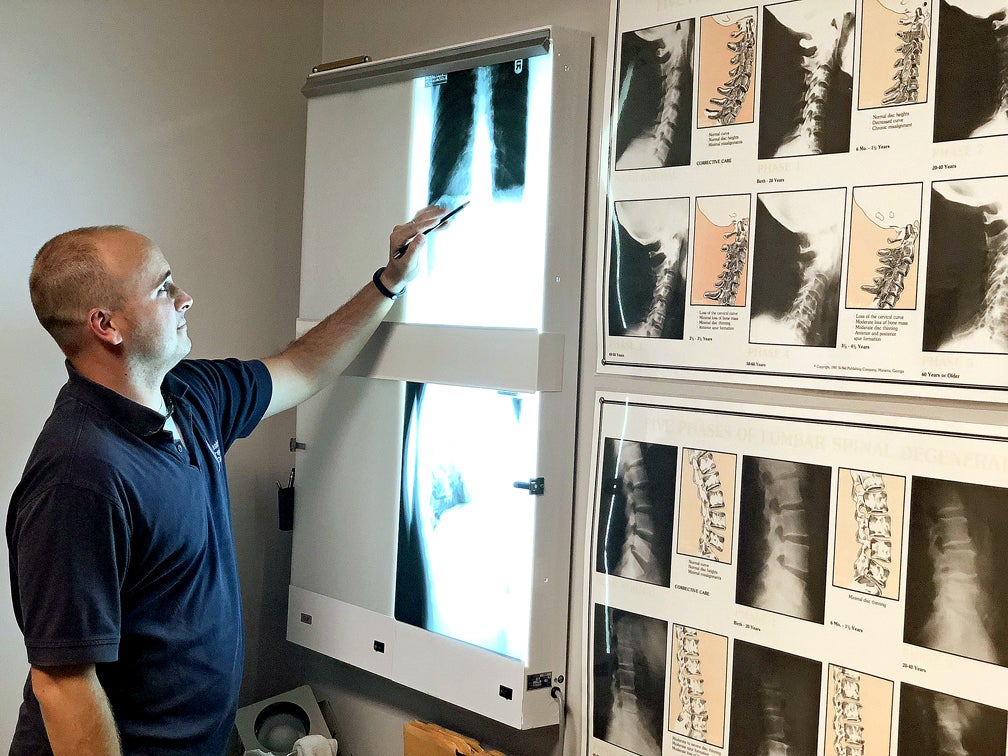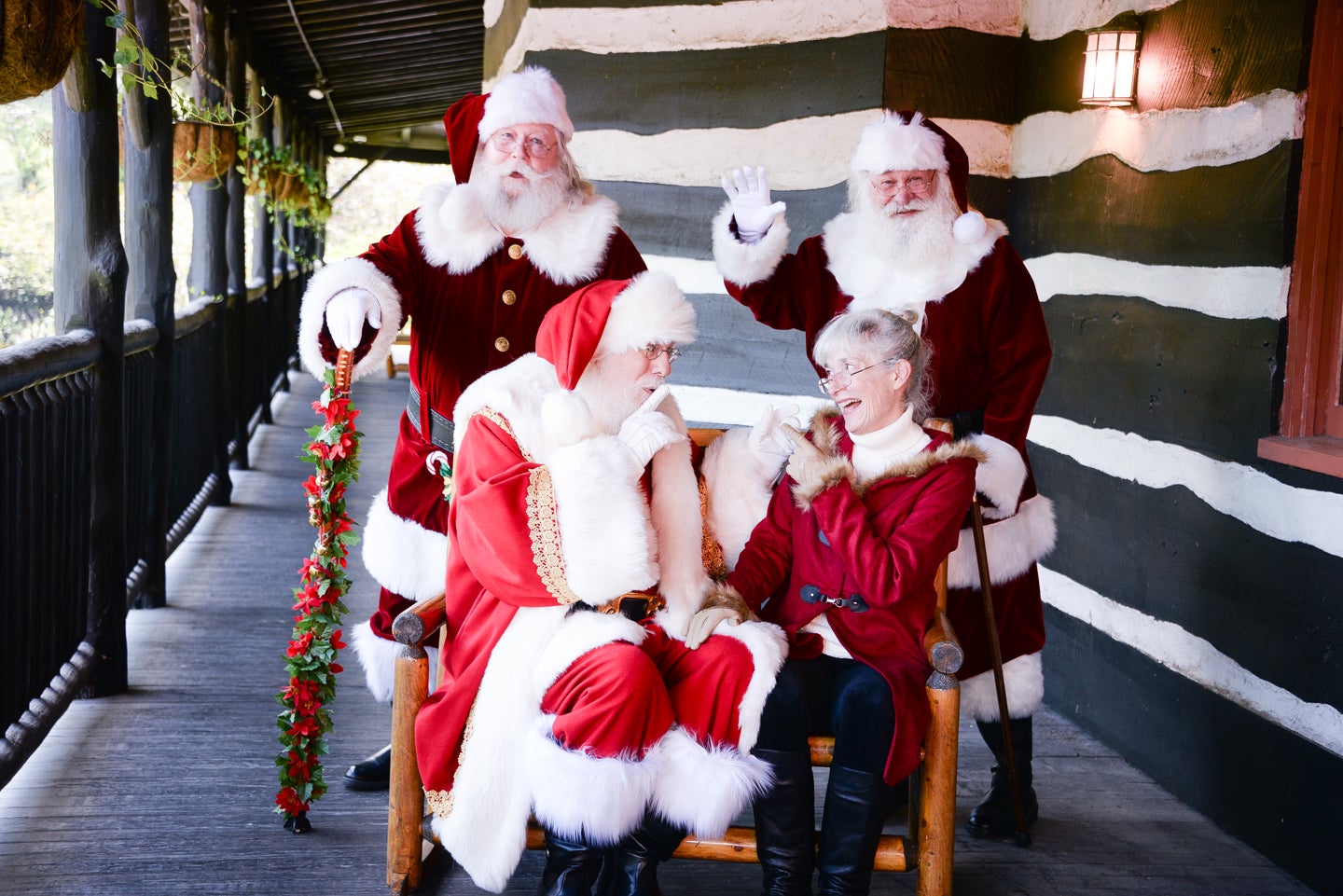By Steve Fry,
North Carolina native Sylvia Coffey met husband Don in Berea at Kentucky Summer Dance School. Twenty-seven years later, they’re still dancing.
“We play well together,” Sylvia said with a smile.
Sylvia is involved, on a volunteer basis, with a handful of happenings in the area. She helps at the Franklin County Activity Center, has taught several varieties of dance to kids and adults, plays with a band, plies her baking skills whenever possible and heads up a group celebrating women’s voting rights.
The last item is very dear to her heart. Sylvia is heavily involved in the Women’s Suffrage Centennial (WSC) project, which celebrates the 100th anniversary, in 2020, of the ratification of the 19th Amendment to the U.S. Constitution that granted women the right to vote.
“In 2014, I read some of Madeline Breckinridge’s writings on the subject,” Sylvia explained. It struck a chord inside her, and she began a quest to bring the women’s suffrage movement back into the consciousness.
“When I realized that the centennial was coming up, I made a commitment to work on this, to learn more about this, and I will follow through until the centennial,” she proclaimed.
To that end, she and 13 other WSC members and supporters marched in last year’s Christmas parade. Both Lexington and Louisville are planning centennial events, as well.
Don piped up at this point, explaining that Tennessee played a pivotal role in the contentious amendment’s passage. By the summer of 1920, he explained, 35 of the 36 needed states had ratified the amendment, eight states had rejected it and five had not voted. Then-Governor Albert Roberts called a special session to consider the issue, and activists for and against suffrage descended on Nashville, intending to influence the election.
The resolution easily passed the Senate, and both sides lobbied furiously to secure votes in the House, which was evenly split. When young Harry T. Burn, of Niota, Tennessee, changed his vote to support ratification, he broke a tie in the state’s House of Representatives and made history. After some legal maneuvering, Roberts certified Tennessee’s ratification and on the 19th Amendment officially became part of the U.S. Constitution on Aug. 26, 1920.
Over 30 members and friends of Sylvia’s WSC group — and a few supportive men — recently prepared packages for the 106 female members of Congress that included a handmade tri-color sash and a ‘2020’ button with which to pin it.
A letter included in the packet says, in part, “The sash is symbolic of the past and how much we owe to those women who cleared the path for us through the 72-year struggle to gain full voting rights.” Sylvia is planning a thousand-woman march up Capital Avenue in 2020 — on Aug. 26, if possible — to celebrate the event.
She’s written a skit on the origins of the suffrage movement that’s been performed at the Paul Sawyier Library, and is willing to take that skit “on the road” if anyone wants to see it.
Burning energy through dancing
Sylvia also is proud of her work with the Glitterbugs, an all-seniors dance group of about 10 — replete with sequined vests, top hats and canes. The group performs at nursing homes and senior centers. They do energetic dances to show tunes from the 40s, 50s and 60s like “All That Jazz,” “Puttin’ on the Ritz” and “The Entertainer.”
“It’s like getting your Broadway wish,” Sylvia added with a laugh, “and we’re always looking for people to join. We practice at the Senior Center on Tuesdays at 3:30. Anyone is welcome to join us.”
Don, who functions as the Glitterbugs’ roadie and sound man, added, “We jokingly called the group ‘Wiggles and Giggles’ until a couple of men joined. Then we decided that name wasn’t appropriate!”
The Coffeys started their Friday Family Dances in 2000, and are working to pass it on to the next generation. “Don and I have ‘called’ dances, and Don worked with the music. We’re training some new callers and are handing that off. The group usually supports and performs at the Heartwood Music Festival in October.”
Kentucky Heartwood is a non-profit forest advocacy organization that has worked for over 25 years to protect Kentucky’s native forests. The Heartwood Music Festival, held at the Millville Community Center, is run entirely by volunteers with donated time and money and has raised many thousands of dollars over the last quarter-century to protect native forests. Learn more at www.kyheartwood.org.
‘Dancing Meadow’
The Coffeys’ Mink Run Road farm, purchased in 1992, is where many of the dances are held. It’s been protected by a conservation easement with Woods and Waters Land Trust, a fact of which the Coffeys are very proud. Don has built “the Playhouse Theatre and Studio” on the property. The entire front end of the Playhouse opens up to a natural amphitheater area on their property and, weather permitting, it hosts plays and dances.
The 43-acre property features a large flat meadow that has been used for outside dances, and which gives the farm its name, “Dancing Meadow.” There’s a large, stone circle on the property, inspired by similar circles in the United Kingdom, and a labyrinth is in the works. A high, clear circle is named, “Astronomy Height,” and a large, string-art Celtic cross hangs just above Mink Run Creek. It’s a very idyllic setting.
In 2010, Sylvia invented “Ae Prideful Ball (Without Prejudice),” an annual presentation of the English Country Dance held in December very near to English novelist Jane Austen’s birthday. The Grand Elegance Ball is presented at the Masonic Temple at the corner of Ann and Main streets. Live music is provided by the Capital City Country Dance Ensemble, another volunteer organization.
In an interview with FRANK., Don launched into a history of the country dance, which he’ll provide to anyone that asks. After the American Revolution, he explained, the United States shunned all things British, but the isolated Appalachian region kept many of the British dances alive.
“At the advent of radio, homemade entertainment nearly died in this country,” Don said. “It wasn’t until the 1960s and 70s, with the rebirth of folk music, that it was rediscovered and it’s thriving today.”
Sylvia teaches folk dancing to youth and community groups, emphasizing the context of American Colonial, Revolutionary and Civil War eras.
Bringing out the music
Sylvia plays upright bass and psaltry (a small harp) and sings but is quick to add that, “All my music comes from Don,” who taught her to play and sing.
“When I moved up here, Don was playing music with friends,” Sylvia continued. “I’m not one to just sit and watch, so Don bought me a bodhran, a small Irish drum, so that I could join in. Then, it came to pass that the group needed a bass player. So, we bought a bass and Don showed me how to play it and I got pretty good at plinking! Don brought the music out of me.”
The Coffeys listed some of the dances they do, including English court and country dances, contra, squares (“traditional squares, not western” Sylvia insists), Appalachian, novelty dancing with the Glitterbugs and international dances like Israeli, Mexican, Danish and Greek dancing. In fact, Sylvia leads a class in international dance at the Capital City Activity Center.
As long-time friend and fellow dancer Ellen Raine puts it, “Don and Sylvia Coffey are ‘dancing in Frankfort.’”
Sylvia is a good cook and, along with Marylynn Collins, has been involved with the Thorn Hill Education Center’s fundraiser Spellapalooza as “the bake sale ladies” since its inception.
“She’s the bake lady,” Don claims. “She bakes and bakes and bakes. Every year she has a ‘Christmas frenzy’ and produces 10,000 cookies!”
“Come on up to the house sometime,” Sylvia exclaimed. “Knock on the door and say ‘I’m here for tea and scones.'”

